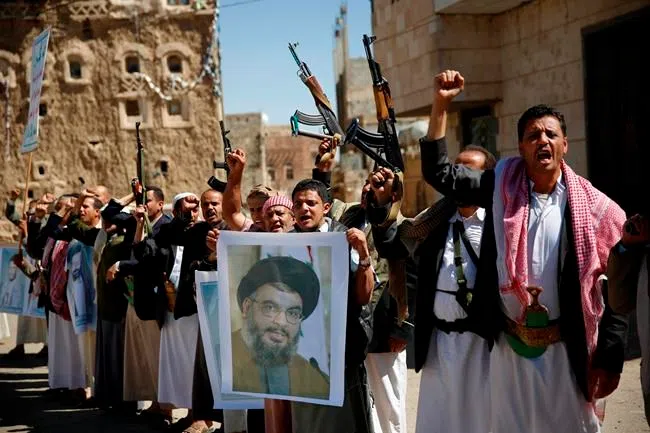
Trump’s move likely to worsen Mideast proxy battles
BEIRUT — There may not be much Iran can do about President Donald Trump’s withdrawal from the nuclear deal, but across the Middle East, it has a variety of ways it can hit back at the United States and America’s regional allies.
Iran has expanded its influence far beyond its borders in recent years, sponsoring an army of tens of thousands of Shiite militiamen spread across Iraq and Syria, all the way to Lebanon. A rocket attack overnight on Israeli positions in the Golan Heights may have been a first salvo, underscoring Tehran’s reach. Israel responded with a blistering wave of missile strikes early Thursday.
Iran also holds enormous political sway in neighbouring Iraq and in Lebanon, where its main Shiite ally, the militant Hezbollah group, scored significant gains in weekend elections. In Iraq, two powerful political alliances expected to win seats in parliamentary elections on Sunday also maintain strong ties to Iran.
In his speech announcing the U.S. withdrawal from the landmark 2015 nuclear deal, Trump called Iran the “world’s leading state sponsor of terror,” citing its support for “terrorist” proxies and militias such as Hezbollah and Hamas, as well as its activities in Yemen.
